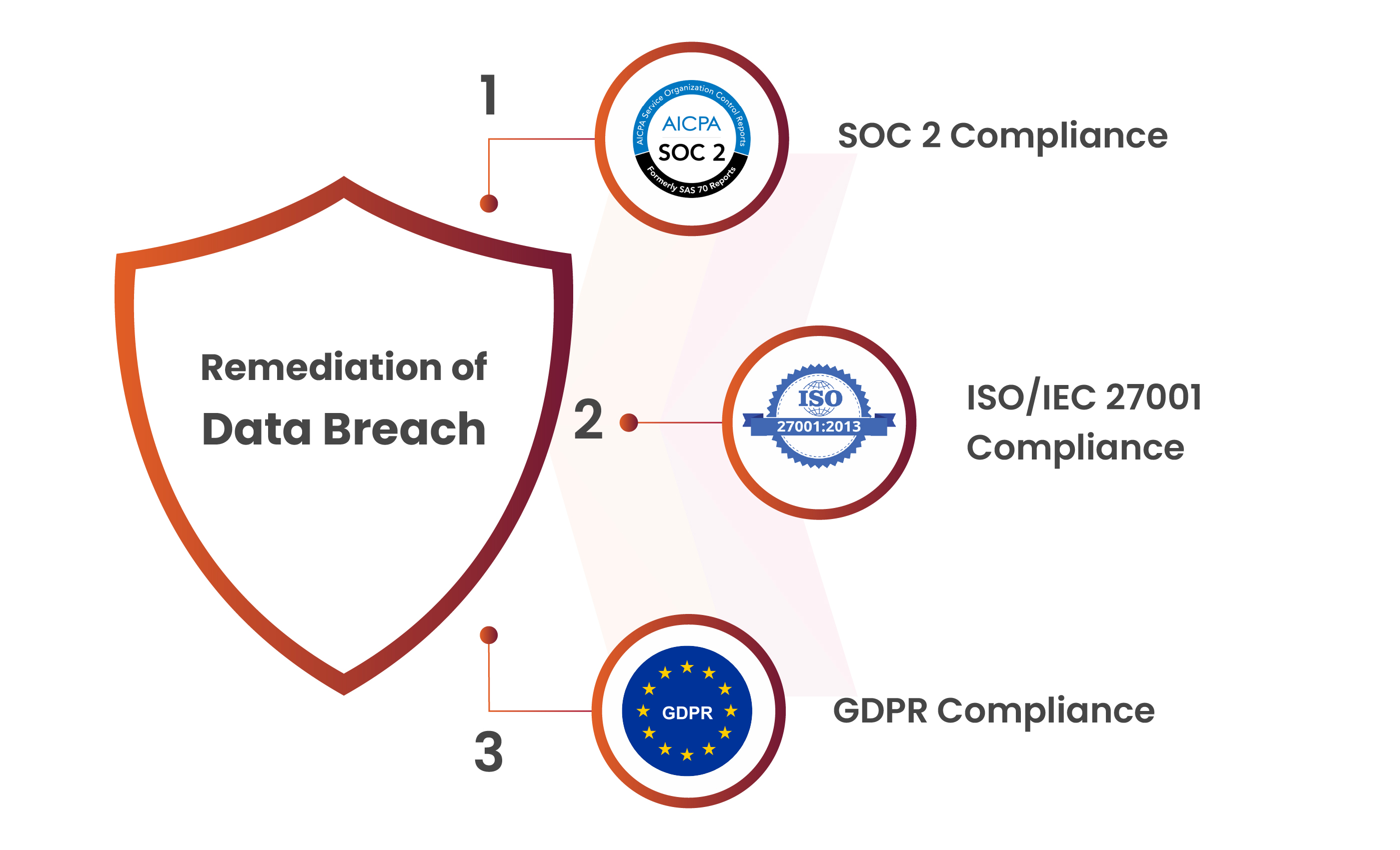Recent developments in the modern world have brought attention to the significance of cybersecurity, as information is both valued and inclined. Records show that, in the year prior, a startling 53% of businesses experienced a data breach involving third-party occurrences. To navigate an era of cyber risks, this unsettling reality necessitates a renewed focus on data integrity protection and digital asset protection. In this blog, we will discuss a data breach in the Hospitality industry. Some of the companies like MGM Resorts and Caesars Entertainment in Vegas have also fallen prey to data breaches leading to heavy loss of data. The revelation of a Marina Bay Sands data breach affected an astounding 6,65,000 customers serves as a reminder of the risks associated with sensitive data.
Such breaches have far-reaching consequences beyond just short-term financial losses. Consequences like regulatory scrutiny, legal ramifications, harm one’s reputation and result in the decline of consumer trust, and trigger it. Modern enterprises are interconnected, which increases the risk of a vulnerable link compromising the ecosystem as a whole. The Marina Bay Sands hack is a stark reminder: no business is immune to evolving cyber threats. It’s a wake-up call for all companies to reassess their cybersecurity defenses. We will understand in depth about the incident that compromised consumer data further in the blog.
Table of Contents
How did the Incident Occur?
This data breach compromised records that encompassed various personal information such as names, e-mail addresses, contact information, international locations of houses, and club-related identifiers. The incident underscores the vulnerability of the hospitality industry to cyber threats. Cybersecurity professionals emphasize the critical want for proactive safety. This involves gaining deeper insights into the methodologies of threat actors and implementing resilient security measures. They highlight the importance of rigorous cyber defense assessments to detect, prevent, and respond to threats effectively. The ongoing investigation found no evidence of the accessed data being misused to harm customers, reassuring them.
Book Your Free Cybersecurity Consultation Today!
Impact of the Data Breach
Despite this breach, Marina Bay Sands assured that its Sands Rewards Club, the casino rewards program, remained unaffected. The company took immediate action by promptly reporting the incident to authorities in Singapore and other relevant jurisdictions. Additionally, they engaged external cyber experts to protect their existing IT infrastructure. It was acknowledged that the accessed data was misused by the unauthorized entity, leading to potential harm to affected customers.
Marina Bay Sands responded to the intrusion by strengthening its security protocols and safeguarding customer data. They contacted affected loyalty program members and sincerely apologized for the inconvenience caused by the breach.
Similar Cyber Attacks in Hospitality and Entertainment Sector
Costis emphasized safeguarding customer data, urging hospitality and entertainment sectors to adopt threat-informed defense systems. The Marina Bay Sands breach wasn’t tied to any ransomware group, unlike prior attacks on MGM Resorts and Caesars Entertainment in Vegas.
The breach compromised customer data, affecting loyalty programs and causing a week-long disruption across all 12 MGM hotel and casino resorts. Confense Intelligence’s September threat report highlights persistent, advanced social engineering, notably phishing, aimed at luxury hotels. Costis stressed proactive measures, advocating the study of threat actor strategies to strengthen cyber asset protection and enhance security programs’ resilience in detecting, preventing, and responding to threats.
Get in!
Join our weekly newsletter and stay updated
Remediation of this Data Breach
After the data incident, Marina Bay Sands could have executed a comprehensive remediation strategy aimed at strengthening cybersecurity and integrating pivotal compliance frameworks. Among these, SOC 2, ISO/IEC 27001, and GDPR would have stood out as vital frameworks instrumental in enhancing data security and reinforcing privacy protocols before the breach. Below are the details of how compliance would have prevented the resort from such a data breach.
Crucial role of SOC 2 Compliance
Had SOC 2 compliance been in place, this post-breach remediation strategy wouldn’t have relied on it. SOC 2, is specifically designed for cloud-based service providers handling customer data. Its absence underscored the urgency for Marina Bay Sands to meet SOC 2 standards. These standards strengthen security measures and forbid unauthorized access or future breaches. The resort’s adoption of this compliance framework would have instigated a reassessment of internal processes.
Impact of ISO 27001 Standard on Data Protection
Integrating ISO 27001 standard would have ensured that the hotel follows global security regulations, protecting buyer and authority data. Implementing this standard not only helps in meeting legal obligations but also significantly reduces the expenses linked to data breaches. The resort chose to adopt it for a safer environment, prioritizing the interests of vendors and customers. This approach effectively diminishes the likelihood of fraud, data loss, and unauthorized disclosure while ensuring robust risk management and compliance protocols. Adhering to universally recognized standards equips the organization to better respond to evolving security threats, emphasizing a proactive stance in safeguarding valuable data assets.
Customer Data Protection with GDPR Compliance
The data breach incident at Marina Bay Sands raised concerns about customer data privacy and protection, prompting the resort to focus on aligning with GDPR regulations. GDPR’s requirements for data protection and privacy became crucial post-breach. The incident emphasized the significance of clear consent, robust data handling practices, and stringent breach notification protocols outlined in GDPR. In order to ensure that Marina Bay Sands complies with GDPR regulations, the company must review its facts strategies, to strengthened its encryption protocols, and reinforce its consent systems. The goal of aligning with GDPR was to ensure adherence to information protection laws with impacted clients and demonstrate a commitment to upholding individuals’ rights to privacy and facts.

Conclusion
The data breach at Marina Bay Sands underscored the critical need for proactive cybersecurity measures and compliance adherence. The incident revealed missing SOC 2, ISO/IEC 27001, and GDPR compliance, urging the resort to swiftly strengthen protection measures. Had SOC 2 been in the area, it would have facilitated a complete reassessment of internal strategies, and protected controls around facts safety, and privacy. Similarly, aligning with ISO standards would have enhanced information security management, bolstering customer confidence through stringent global standards. Additionally, focusing on GDPR alignment post-breach would have ensured robust data protection practices, rebuilding trust with affected customers.
Kratikal, a CERT-In empanelled auditor, offers comprehensive cybersecurity solutions aimed at protecting businesses from diverse cyber threats. Our main focus revolves around securing web applications to actively reduce risks. Collaborating with Kratikal empowers businesses to detect and resolve security weaknesses at an early stage, preventing potential exploitation by attackers.
Ref: https://cybernews.com/security/marina-bay-sands-breach-singapore-luxury-resort-/








Leave a comment
Your email address will not be published. Required fields are marked *